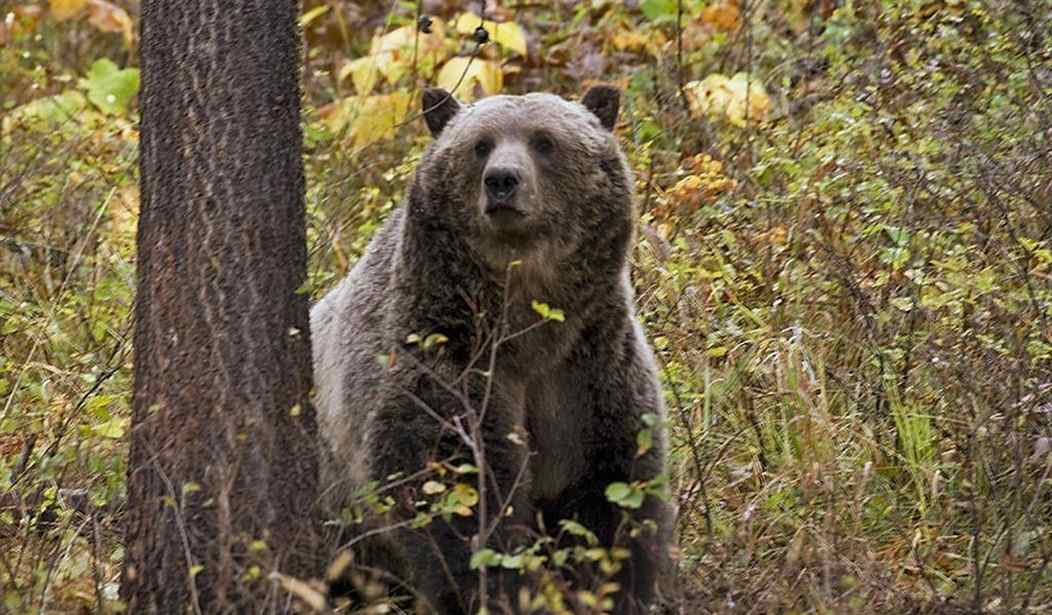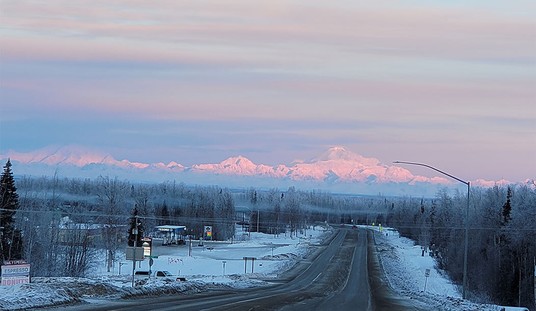Exactly one month ago today, we brought you the story of the Biden Administration's ill-advised plan to re-introduce grizzly bears into northern Washington. In that piece, we noted that six local Republican office-holders were pushing to extend the public comment period on this proposal. Now we can report that, in one of these public comment sessions in northern Washington, things got a little... hairy.
Dozens of local residents in northern Washington recently voiced their strong opposition to a Biden administration plan to release grizzly bears, an apex predator, in a federally-managed forest area near their communities.
More than 200 local residents attended a public comment session in northern Washington hosted by the Fish and Wildlife Service (USFWS) and National Parks Service (NPS), with roughly 50 speaking in opposition of the federal grizzly bear proposal and just six voicing their support. Rep. Dan Newhouse, R-Wash., who represents local communities, was among the speakers voicing concerns about the plan's potential consequences.
"As a farmer, I worry not only about the bears destroying my crops, but for the safety and well-being of myself, my family, and my on-farm hands," Newhouse remarked during the session. "It is clear you all know that grizzlies can and probably will move out of the zone in which you drop them in, yet rather than letting common sense prevail, are continuing to push forward with this dangerous plan."
Clearly, residents of the area where these bears are to be reintroduced aren't very happy about the idea.
Biden Administration's Insane Grizzly Bear Plan Has Citizens Angryhttps://t.co/PWOv2waocz
— Twitchy Team (@TwitchyTeam) November 9, 2023
Of course, the griz will move out of the areas where they are transplanted; that's what big apex predators do. A female griz can have a home range of 50 to 150 square miles, while a big male may have a range of up to 600 square miles. While bears are not as territorial as some predators and some overlap occurs, there is still always the tendency of younger bears to spread out, to seek new feeding grounds and sources.
People in densely populated areas can provide lots of food sources for bears, wittingly or unwittingly, and when a 600-pound apex predator starts associating humans with food sources, that almost never ends up well for the humans or the bear.
The U.S. Fish and Wildlife Service's Regional Director pointed out that northern Washington was, at one point, grizzly range.
Hugh Morrison, the regional FWS director, said grizzly bears are part of the region's heritage and restoring them could be done in a way that ensures communities, residents and animals "can all coexist peacefully."
There's a problem with that rather blithe assumption; northern Washington is a very different place than it was the last time grizzlies roamed the forests. It is much more densely populated, with human-raised livestock in most areas; the livestock, one might add, represents another easy food source for the big bears, particularly the young. In parts of their range where grizzlies still roam naturally, such as here in Alaska, the big bruins kill not only moose calves but adult moose as well; this behavior could easily transfer to livestock.
Grizzlies are also known to become aggressive for no discernible reason. That's not surprising, as a grizzly is a big apex predator, bordering on megafauna, and they are just plain not genetically programmed to be afraid of anything in their environment. Their interactions with humans and human infrastructure are often bad for the bears, even when humans are only indirectly involved.
Nature is a complex web of interactions, and we humans only understand a small part of it. When humans have interfered with that web — rabbits in Australia, feral hogs in Texas, rats almost everywhere — it hasn't gone well. The Biden Administration should ignore the shouting of urban environmentalists; they should listen to the people who actually live in the environment, and they should leave the grizzlies where they are.














Join the conversation as a VIP Member